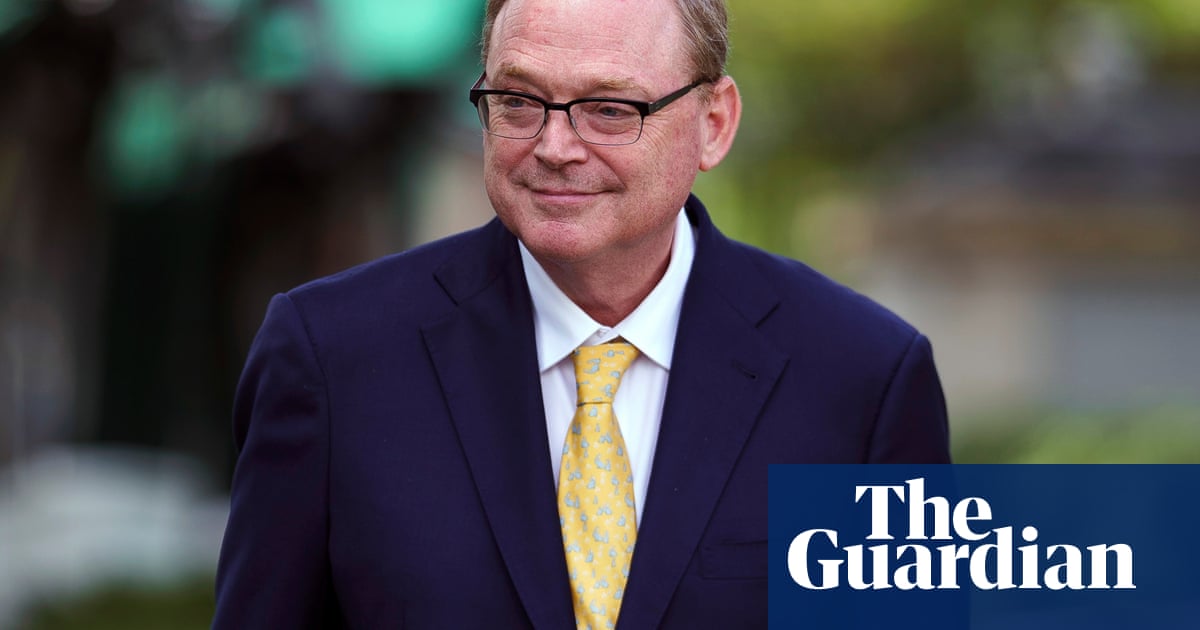Trade Deal Tensions: Trump’s Tariff Threats and Global Reactions
In a move that signals ongoing trade tensions, White House economic adviser Kevin Hassett revealed on Sunday that President Donald Trump has been assessing recent trade deal offers but finds them lacking. This sentiment serves as an ominous precursor to potential tariff implementations on various countries, including Mexico and the European Union, if satisfactory improvements aren’t made.
Hassett articulated on ABC’s "This Week" that the tariffs are not mere threats. “These tariffs are real if the president doesn’t get a deal that he thinks is good enough,” he asserted, highlighting the serious nature of the negotiations unfolding. With ongoing discussions, the outcome remains uncertain, but the stakes are undeniably high.
Frustration with Brazil
Brazil finds itself entangled in this web of trade disputes, as Trump has threatened a staggering 50% tariff on Brazilian goods. According to Hassett, this move reflects Trump’s frustration with Brazil’s trade negotiations and recent actions. The Brazilian government has responded defiantly; President Luiz Inácio Lula da Silva stated, “If he charges us 50%, we’ll charge him 50%,” indicating that retaliatory measures are on the table should economic tensions escalate further.
Impending Tariffs on EU and Mexico
Trump’s economic calculations have set the stage for a significant increase in tariffs, with the president announcing a 30% tariff on goods from both the European Union and Mexico, set to take effect on August 1. This announcement has raised eyebrows and stirred anger among European leaders, some of whom believed a previous agreement had been reached that would impose a 10% tariff, a substantial increase from pre-Trump levels.
In response to this turbulent scenario, German Chancellor Friedrich Merz stated his commitment to working closely with French President Emmanuel Macron and European Commission President Ursula von der Leyen to mitigate the impending trade war. Merz emphasized the urgency of finding a resolution before the looming August deadline.
Economic Implications for Europe
The proposed tariffs could wreak havoc on the German economy, which has prompted Merz to intensify his diplomatic efforts. He indicated that unity among European nations and constructive dialogue with the U.S. administration are essential to resolving these issues. However, he did not dismiss the idea of countermeasures, albeit with caution, stating, "But not before August 1."
The EU, under pressure from member states, is contemplating potential retaliatory measures totaling €21 billion ($24.6 billion), though these actions may remain paused until Trump’s deadline. French President Macron has echoed sentiments urging the EU to assert its economic interests firmly in light of Trump’s aggressive trade tactics.
Local Responses in France
The agricultural sector in France has expressed grave concerns about the fallout from proposed tariffs. Jean-François Loiseau, president of a food lobby group, warned that a 30% duty would be “disastrous” for the nation’s agricultural landscape. Similarly, Francois Xavier Huard, CEO of the dairy association FNIL, stated the tariffs could deliver a significant blow to milk and cheese producers, emphasizing the importance of the American market for their businesses.
Fed Chair Controversies
Amid these trade upheavals, Hassett also touched upon domestic economic matters, suggesting that Trump possesses the authority to dismiss Federal Reserve Chair Jerome Powell if warranted. This assertion points to ongoing frustrations within the Trump administration regarding rising renovation costs at the Fed’s headquarters. Hassett’s comments suggest that any decision to approach Powell’s termination would hinge on forthcoming answers to inquiries directed at the Federal Reserve by the White House budget director, Russ Vought.
Speculation arises that Hassett himself may be in contention to succeed Powell, adding another layer of complexity to a politically charged environment. Trump has publicly called for Powell to resign for not lowering interest rates, signaling a growing divide between the administration and the Fed’s leadership.
As these negotiations and tensions continue to unfold, the international community watches closely, bracing for potential economic ramifications that could touch several sectors and countries. The coming weeks promise to be pivotal in reshaping not just trade relationships but the broader economic landscape.


